
The received wisdom is that Team Fortress 2 has changed, and not for the better. The argument, often made by former players, is that everything Valve has added to the game over the last 13 years – the hats, the achievements, the jars of human piss – has diluted the spirit of what TF2 once was. I’ve fallen into the same trap myself over the years, bemoaning that the game I once loved no longer exists.
It would be absurd to suggest that Team Fortress 2 hasn’t changed; it was arguably the poster child for games-as-a-service design. It’s evident in everything from the menus to the way you start a match. Nevertheless, returning after years away, I’m struck by how much of the core appeal remains. There is more now: more maps, more weapons, more customisation options, more effects. Sometimes there are lasers. Sometimes you’ll be drenched in milk. In a handful of ways, though, this is still the TF2 that became one of the most influential online shooters of the 21st century so far.
Load into a match and you’ll still get teammates in your home spawn accusing every player of being a Spy. You’ll still get intractable 2Fort stalemates, as players abandon the objective in favour of an endless deathmatch. You’ll still get sniper wars and W+M1 Pyros. Most importantly, you’ll still get the clarity of purpose and personality of its nine classes, who retain their role and at-a-glance design, even as their arsenals and accoutrements have grown over so many updates.
CLASS ACT
This story is from the {{IssueName}} edition of {{MagazineName}}.
Start your 7-day Magzter GOLD free trial to access thousands of curated premium stories, and 9,000+ magazines and newspapers.
Already a subscriber ? Sign In
This story is from the {{IssueName}} edition of {{MagazineName}}.
Start your 7-day Magzter GOLD free trial to access thousands of curated premium stories, and 9,000+ magazines and newspapers.
Already a subscriber? Sign In

A New Dawn - The rise, fall and rise again of PC Gaming in Japan
The so-called 'Paso Kon' market (ie katakana's transliteration of 'Pasonaru Computa') in Japan was originally spearheaded in the 1980s by NEC's PC-8800 and, later, its PC-9800.
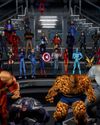
MARVEL: ULTIMATE ALLIANCE
Enter the multiverse of modness.
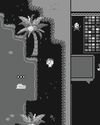
SLIDES RULE
Redeeming a hated puzzle mechanic with SLIDER
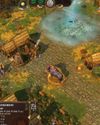
GODS AND MONSTERS
AGE OF MYTHOLOGY: RETOLD modernises a classic RTS with care

PHANTOM BLADE ZERO
Less Sekiro, more Wo Long: Fallen Dynasty

STARR-MAKING ROLE
Final Fantasy XVI's BEN STARR talks becoming a meme and dating summons
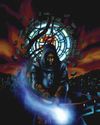
THIEF GOLD
Learning to forgive myself for knocking out every single guard.

HANDHELD GAMING PCs
In lieu of more powerful processors, handhelds are getting weirder
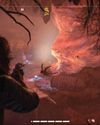
FAR FAR AWAY
STAR WARS OUTLAWS succeeds at the little things, but not much else shines
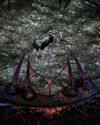
FINDING IMMORTALITY
Twenty-five years on, PLANESCAPE: TORMENT is still one of the most talked-about RPGs of all time. This is the story of how it was created as a ‘stay-busy’ project by a small team at Black Isle Studios